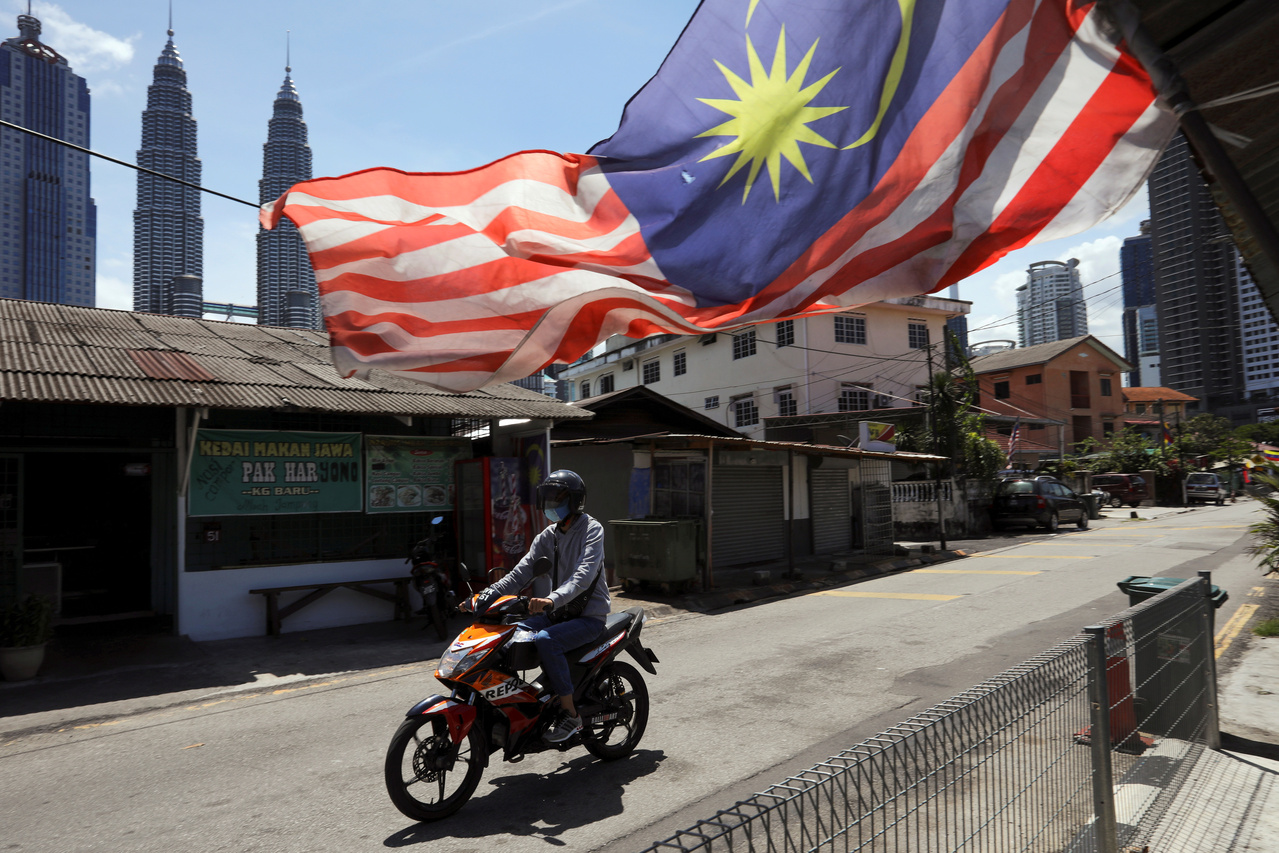Malaysia's Covid-19 infections rise to highest in six weeks
Sign up now: Get ST's newsletters delivered to your inbox

The Malaysian government does not intend to impose a movement control order and will rely on targeted curbs in affected sites.
PHOTO: REUTERS
Follow topic:
KUALA LUMPUR - Malaysia's daily Covid-19 cases breached the 2,000 mark for the first time in over a month as concerns grow over a new spike in infections during the Ramadan fasting month.
Malaysia on Thursday (April 15) reported 2,148 new infections, the highest number since March 5.
The country's new cases had shown an upward tick over the past week. Just over two weeks ago, infections dropped below the 1,000 mark for the first time this year to 941 cases on March 29.
Malaysia's record high was logged at 5,278 daily cases on Jan 30.
The spike coincided with the beginning of the Ramadan fasting month - which began on Tuesday (April 13), with the government allowing Ramadan food bazaars to operate after banning them last year.
The government is also allowing eateries to remain open until 6am daily, beyond the usual midnight shutdown, saying Muslims need to buy food for their pre-dawn meal.
The country's coordinating minister for immunisation Khairy Jamaluddin on Thursday urged the National Security Council (NSC) to review its relaxed Covid-19 protocols which includes permissions for the bazaars to operate.
Mr Khairy said it would be extremely tough to adhere to protocols such as physical distancing at these bazaars, which are swarmed by hundreds to thousands of people looking to buy food from the stalls.
"No matter what type of enforcement you do there, they are bound to get close to one another. So, in this situation, it is either you continue (with Ramadan bazaars) or you don't," he told reporters in Negeri Sembilan.
Prime Minister Muhyiddin Yassin previously reminded those visiting Ramadan bazaars to adhere to the Covid-19 protocols after pictures of crowded Ramadan bazaar areas circulated on social media on Wednesday.
Tan Sri Muhyiddin told a meeting with industry representatives on Thursday that the government has no intention to impose a nationwide Movement Control Order (MCO) for a third time.
The Health Ministry's director-general Dr Noor Hisham Abdullah said on Twitter that the country's rate of infectivity was at 1.14 on Wednesday.
It was at 0.89 on Feb 14.
Officials have said Malaysia must lower the infectivity rate to 0.8 to bring down daily cases to 500.
Much of Malaysia was under the MCO, Malaysia's strictest form of lockdown, for over a month from January until late February, before the protocols were relaxed towards March.
But an interstate travel ban that has been implemented since January remains in place.
Health Minister Adham Baba said on Thursday that his ministry was proposing that the interstate travel ban remains in place for the Hari Raya Aidilfitri celebrations in mid-May. The exodus to hometowns, called balik kampung, was banned for the Hari Raya holidays last year.
Seven of the 10 districts in the east coast state of Kelantan, including its capital Kota Baru, will come under the MCO from Friday for two weeks due to the recent surge in cases.
Five of the 28 districts in Sarawak, the worst hit state in the recent spike, will also come under MCO.
Its health system was previously on the verge of a collapse as active cases climbed above 50,000 earlier this year, but the decline in cases in March saw the number brought down to the 15,000 mark, before climbing back up in the past week.
Malaysia has so far vaccinated just over 1.01 million people since beginning its immunisation programme in late February.
It will begin a second phase of vaccinations on Monday next week (April 19) involving larger target groups, before vaccinating the general population from May.

